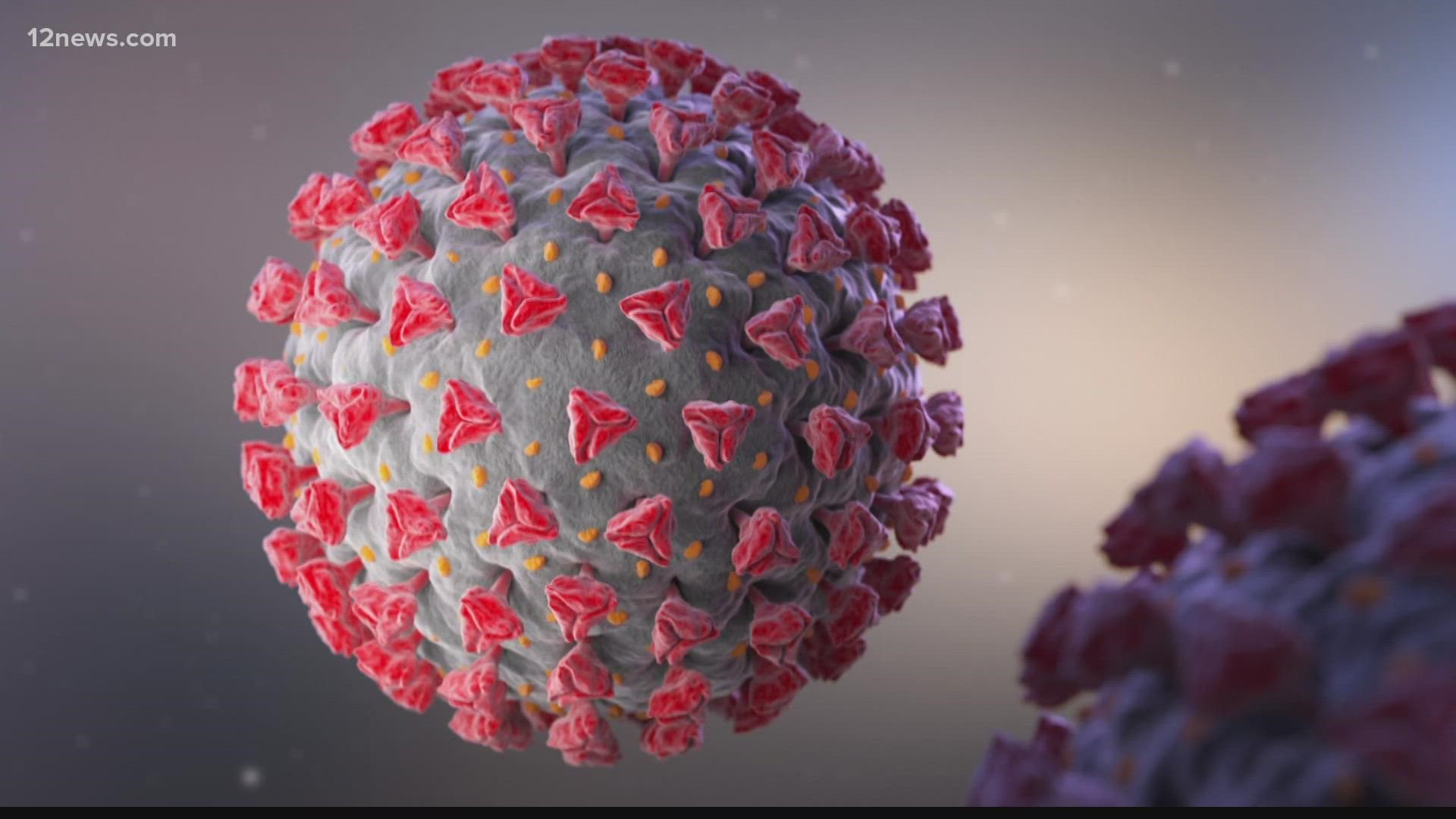TUCSON, Ariz. — A University of Arizona College of Medicine-Tucson researcher and her team think they may have found something that could prevent or treat COVID-19.
Bacterial lysate targets cells
Dr. Donata Vercelli, the associate director for UArizona's Asthma and Airway Disease Research Center, as well as a professor for the UArizona's College of Medicine in Tucson said it was data from another study she worked on related to asthma prevention, that led her to ask questions about COVID-19.
That study found bacterial lysate, which is basically a mixture of bacteria strains that help fight infections, affected epithelial cells.
"Could it be one of those genes is the receptor for COVID?" Vercelli said.
Vercelli and her team's current study found that it is.
"Never ever in my life I would've expected to be working with COVID but it was the urgency brought by the data that we got that took us there," Vercelli said.
The virus that causes COVID-19 has to go through specific cells in our body, like doors to our houses, to infect us.
What Dr. Vercelli found is that bacterial lysate, the mixture of bacteria strains, essentially shuts the door to those cells, making it much more difficult for COVID to get into the cells and infect a person.
"It reduces the initial binding of the virus to the cells, it reduces the entry of the virus into the cells and most importantly, it reduces the infection of those cells by live virus," Vercelli said.
Could prove effective against variants
If turned into a preventative or treatment for COVID, the bacterial lysates are a different way of addressing the virus than the vaccines currently available.
"I would see this treatment with the lysate doing, is not replacing the vaccines but working with the vaccines," Vercelli said.
While vaccines might eventually not provide immunity to certain variants of COVID-19, Vercelli believes the bacterial lysate could be because the lysate targets the receptors in the cells, not the virus itself.
"This treatment could be potentially 'variant independent', not affected by differences in the variants that we encounter," Vercelli said.
Hoping for clinical trials
Vercelli said the bacterial lysates she studied are used by more than 40 million people around the globe to help prevent infections. In addition, Vercelli said she hopes the lack of side effects people have experienced will help human trials come quickly.
“It could be a very, very attractive tool to have," Vercelli said.
COVID-19 News and Updates
Subscribe to the 12 News YouTube channel to receive notifications on the latest videos about the latest information on the coronavirus.

